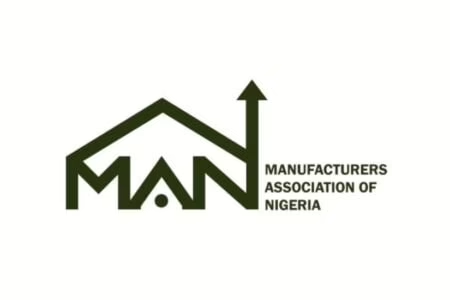The Manufacturers Association of Nigeria (MAN) has expressed its appreciation to the federal government and the Minister of Finance & Coordinating Minister for the Economy, Wale Edun, following the recent halt of the reinstated four percent Free-on-Board (FOB) levy on imports, which was set to take effect on August 4, 2025.
Segun Ajayi-Kadir, MAN’s director-general, described the suspension as a welcome relief for the association’s members and the wider manufacturing industry, which had been deeply concerned about the reimposition of this fee.
He emphasized the association’s confidence that the Nigeria Customs Service (NCS), in line with its ongoing positive reforms, would promptly disseminate the directive across all relevant units to ensure the removal of the charge from its system, while the full restoration of the B’Odogwu platform remains eagerly anticipated.
Ajayi-Kadir highlighted that this decision has provided immediate reassurance and motivation to Nigeria’s manufacturing sector and is a positive development for the entire business environment.
“The minister’s intervention has prevented a potential surge in prices that could have disrupted the economic stability and strategic redirection this administration has worked hard to establish. Although the charge aimed to increase government revenue, it would have been counterproductive, much like scoring an own goal in a critical match,” he remarked.
He further explained that the reintroduction of the levy was a source of significant concern, as it threatened to sharply increase the costs of essential raw materials, machinery, and spare parts that are not produced domestically and must be imported.
Ajayi-Kadir revealed, “Our opposition to the charge was based on a thorough technical evaluation and extensive consultations with over 2,500 members spanning 10 sectors and more than 60 sub-sectors nationwide.”
“It became clear that the financial burden imposed by the four percent FOB charge exceeded the combined impact of the existing seven percent surcharge and one percent Customs Import Supervision Scheme (CISS). This would have substantially raised input costs, which manufacturers would inevitably pass on to consumers, exacerbating inflation-already at 21.88 percent as of July 2025. In contrast, comparable rates in the West African region range from 0.5 to one percent. Maintaining a four percent FOB charge would have escalated operational expenses, encouraged informal cross-border trade, cargo diversion, and underdeclaration,” he added.
Ajayi-Kadir stressed that reversing the charge was essential to support government initiatives aimed at lowering local production costs, enhancing domestic value addition, and fostering economic diversification.
He also called on the government to assess the impact of these measures carefully and ensure they align with the objectives and provisions of the newly enacted Tax Laws, so that all policies work cohesively rather than at cross purposes.
Finally, he urged the federal government to persist in adopting strategies that stimulate industrial growth, reduce business expenses, and promote local manufacturing by removing the various obstacles that currently hinder the sector’s expansion and the nation’s economic progress.






















